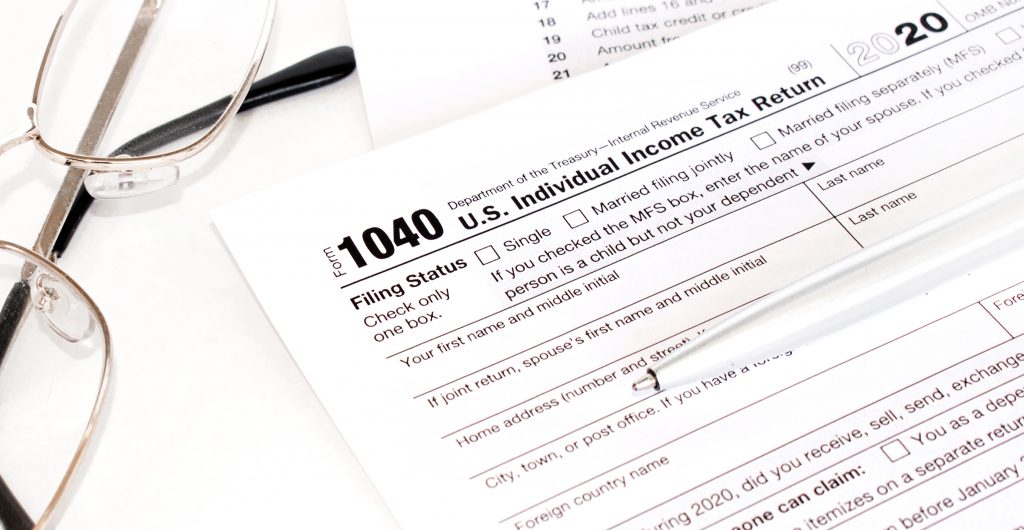Life happened, circumstances changed, and you missed the filing deadline. Now, you’re looking at fees and penalties that you will have to pay on top of your existing tax bill. This can be an overwhelming and frustrating process, but it’s easier to navigate if you know what to expect.
Let’s play out the worst-case scenario, so you can understand what would happen if you simply do not file your taxes (even after receiving notice from the IRS). The more time you let go past the deadline, the more penalties you will incur. Depending on the circumstances, the IRS may mail notices like a reminder to file your tax return. In other cases, they may automatically file the substitute return — you will likely receive a notice in the mail about this as well.
If you miss the tax deadline and don’t file on time, the IRS will most likely file a substitute return as the first step. This is a document the IRS files on your behalf, and it means that they are processing your tax collection themselves. However, it can result in higher taxes due to missed reductions, omissions, and overstated tax liability. For that reason, it’s in your best interest to file taxes as soon as possible, even if the deadline passes.
To help you learn more about what happens when you don’t file your taxes on time, here is an overview of the possible notices taxpayers may receive and how to respond.
First Contact By The IRS
There are 12 notices the IRS may send you through the mail. For taxpayers who recently received a notice and are looking for answers, refer to the following list of initial and follow-up notices:
- CP59 Notice – The IRS has no records of prior tax returns. A taxpayer may also receive the CP515l Notice, CP516 Notice, CP518l Notice, and CP518B Notice as follow-ups should they not file tax returns and complete the required form.
- CP63 Notice – The IRS believes a taxpayer owes tax. Should a taxpayer not reply, the IRS will follow up with a CP2566R Notice, claiming the right to calculate the taxpayer’s tax and penalties based on taxable income.
- CP259 Notice – A taxpayer was required to file a return but hasn’t.
- CP2566 Notice – The IRS did not receive a taxpayer’s tax return and calculated the tax and penalties based on taxable income.
- CP3219A Notice – A declaration that the IRS increased or decreased taxes owed due to different information than what a taxpayer reported on their return.
- LT3219B Notice – Also known as a Statutory Notice of Deficiency, which declares the IRS’ intent to assess a tax deficiency and informs a taxpayer of their right to petition to the U.S. Tax Court.
- CP3219N Notice – Similar to the CP2566 Notice, but this notice is paired with a Notice of Deficiency.
It’s also important to remember that if you, the taxpayer, receive the IRS’ notices, your overdue-tax penalties will be rising through monthly fees and interest. A timely response is always best. If you receive one or more of the above notices, you have a few options in terms of your response.
How To Respond
After finding a notice in the mail, your first option is to follow the notice’s corresponding instructions for resolving the issue. For example, a taxpayer receiving the CP59 Notice would be instructed to file their tax return, or explain why they didn’t file, and complete a Form 15103 – Form 1040 Return Delinquency, to explain the circumstances of the absent tax return. The instructions for the other notices will be mentioned in the text of the document and can also be viewed through the IRS official website.
If you take issue with one of the notices sent, you may choose to dispute the actions or determinations of the IRS. For example, the IRS may calculate a taxpayer’s tax and penalties depending on the notice—in those cases, a taxpayer can call the IRS directly to voice disagreement, or they can petition the U.S. Tax Court within the time frame outlined on the notice. The IRS usually gives taxpayers a 90-day window to respond to these notices, and the same applies if you want to contest a substitute return or other evaluation.
The final thing to remember regarding late tax filing is a taxpayer’s right to representation. Dealing with the different forms is stressful enough and disagreeing with the IRS’ decision extends the time a taxpayer must spend on these events. AG FinTax can help make the entire process easier, and experts can ultimately help reduce penalties and save you more money.




